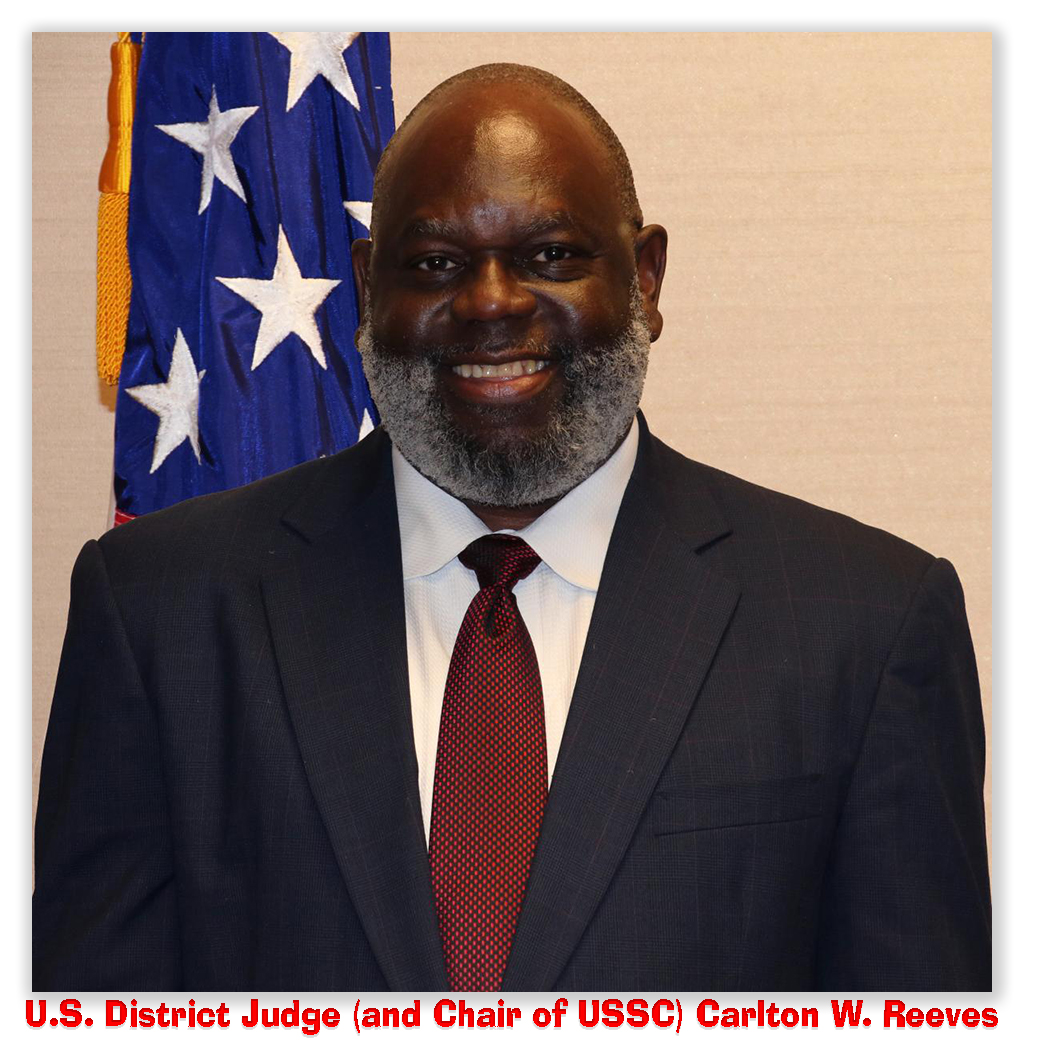We post news and comment on federal criminal justice issues, focused primarily on trial and post-conviction matters, legislative initiatives, and sentencing issues.

SENTENCING COMMISSION TAKES A WHACK AT ACQUITTED CONDUCT
The US Sentencing Commission last week adopted a slate of proposed amendments to the Guidelines, finally addressing the acquitted conduct issue that has bedeviled the Commission and Supreme Court for the past two years.
 SCOTUS sidestepped the question last year, sitting on 13 certiorari petitions raising the question of whether sentencing for acquitted conduct – that is, conduct for which a defendant has been found not guilty by a jury – is constitutional. At the prodding of the Dept of Justice – which told the Supremes that they should let the Sentencing Commission handle it only to then tell the Sentencing Commission it lacked the power to do so – SCOTUS finally denied the cert petitions last July, with several justices saying they would wait for the Sentencing Commission to address the issue.
SCOTUS sidestepped the question last year, sitting on 13 certiorari petitions raising the question of whether sentencing for acquitted conduct – that is, conduct for which a defendant has been found not guilty by a jury – is constitutional. At the prodding of the Dept of Justice – which told the Supremes that they should let the Sentencing Commission handle it only to then tell the Sentencing Commission it lacked the power to do so – SCOTUS finally denied the cert petitions last July, with several justices saying they would wait for the Sentencing Commission to address the issue.
The acquitted conduct Guidelines amendment will redefine “relevant conduct” under USSG § 1B1.3 to exclude conduct for which a defendant was acquitted in federal court. Because judges must rely on “relevant conduct” to set the Guidelines sentencing range, the change is significant.
For example, if a defendant is convicted of distributing cocaine but acquitted of selling heroin, the amount of heroin that the government said he had sold currently be factored into his Guidelines range as long as the judge found it more likely than not that he had actually sold it. The proposed amendment would prohibit counting the heroin regardless of whether the judge thought the defendant had done it or not.
“Not guilty means not guilty,” Sentencing Commission Chairman Judge Carlton W. Reeves, who sits on the Southern District of Mississippi bench, said. “By enshrining this basic fact within the federal sentencing guidelines, the Commission is taking an important step to protect the credibility of our courts and criminal justice system.”
 Commissioners were divided on whether to consider enforcing the acquitted conduct sentencing amendment retroactively. A majority voted to have the USSC staff prepare a retroactivity impact analysis, which is the initial step toward making an amendment retroactive.
Commissioners were divided on whether to consider enforcing the acquitted conduct sentencing amendment retroactively. A majority voted to have the USSC staff prepare a retroactivity impact analysis, which is the initial step toward making an amendment retroactive.
Sen. Richard Durbin (D-IL), chairman of the Judiciary Committee, said in a press release, applauded the Commission’s vote, noting that it came after he and Sen Charles Grassley (R-IA) introduced the Prohibiting Punishment of Acquitted Conduct Act of 2023. The legislation would have prohibited judges from using conduct acquitted by a jury. The measure has not gained consideration the full Senate.
The Commission is allowed to grant retroactivity – which lets people already sentenced according to Guidelines that are now being amended go back to court to secure the benefit of the amendment in the form of a reduced sentence – on new defendant-friendly amendments. Ratroactivity on last fall’s criminal history amendments was vigorously opposed by some commissioners and the DOJ, which has an ex officio representative on the Commission. This time around, the Commission is considering whether to make multiple defendant-friendly changes retroactive:
• the acquitted conduct amendment;
• a change to juvenile sentences that eliminates adding 2 points for prior juvenile incarcerations of more than 60 days;
• a change to §2K2.1(b)(4)(B)(i) to provide that the 4-level enhancement gun serial number obliteration applies only if the serial number has been modified such the original number is “is rendered illegible or unrecognizable to the unaided eye;” and
• a change to Commentary in §2K2.4 to permit grouping of 922(g) gun count with drug trafficking count where the defendant has a separate 18 USC 924(c) conviction based on drug trafficking.
During the retroactivity vote, Commissioner Claire Murray – a former Trump administration DOJ official – made the obvious point that judges may also still rely on acquitted conduct at sentencing when considering the § 3553(a) sentencing factors, including the nature and circumstances of the offense and the history and characteristics of the defendant, which courts must consider at sentencing, regardless of the Guidelines advisory sentencing range.
The bad news in the amendments was pretty much expected. For economic crimes, the recommended sentence under the guidelines increases dramatically as the amount of loss resulting from the offense increases.
 As it is now written, the loss is defined in the Guidelines commentary as the higher of actual loss or intended loss. If you try to steal the Hope Diamond from the Smithsonian (value $250 million) but only get a rhinestone imitation (value $250) because the real one had been rented out to Taylor Swift for the weekend, the Smithsonian’s actual loss would be just a few bucks, but the intended loss would be a quarter billion.
As it is now written, the loss is defined in the Guidelines commentary as the higher of actual loss or intended loss. If you try to steal the Hope Diamond from the Smithsonian (value $250 million) but only get a rhinestone imitation (value $250) because the real one had been rented out to Taylor Swift for the weekend, the Smithsonian’s actual loss would be just a few bucks, but the intended loss would be a quarter billion.
In 2022, the 3rd Circuit held in United States v. Banks that the Commentary expanded the definition of loss beyond the ordinary meaning of “actual loss,” and thus, “intended loss” could not be used to set a defendant’s Guidelines. The new loss amendment moves the commentary section into the actual guideline, making sure that intended loss is included in setting the Guideline sentencing range and allowing the use of gain from the offense as a substitute for loss.
Whether the changes will become retroactive depends in part on USSC data on how many prisoners would be eligible for a reduction. If the number is too high, the Commission becomes concerned that the courts will be overwhelmed with reduction motions.
Finally, unhappy that the Commission last year adopted a new compassionate release guideline and made the criminal history guidelines retroactive on a 4-3 vote, Sen John Kennedy (R-LA) last week introduced the Consensus in Sentencing Act to require that changes to the Guidelines get at least five votes out of the seven Commissioners.
Ohio State University law professor Doug Berman, writing in his Sentencing Law and Policy blog, said it “cannot be pure coincidence” that Kennedy introduced the bill the day before last week’s USSC meeting. The bill stands little chance of passing before Congress expires at the end of the year.
Reuters, US panel prohibits judges from sentencing for ‘acquitted conduct’ (April 17, 2024)
Law360, Sentencing Commission Limits Acquitted Conduct Sentencing (April 17, 2024)
Press release, Durbin Applauds Sentencing Commission’s Unanimous Vote To Prohibit Acquitted Conduct From Being Used In Sentencing Guidelines (April 18, 2024)
Sentencing Law and Policy, Senator Kennedy introduces “Consensus in Sentencing Act” to increase USSC votes needed for guideline amendments (April 16, 2024)
– Thomas L. Root

